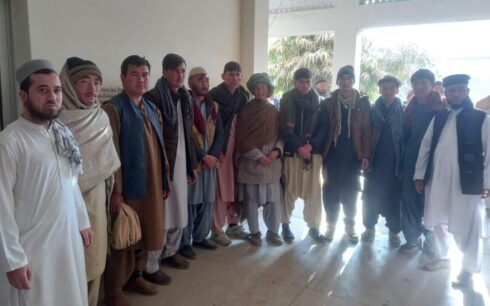TEHRAN — Iran has given more than four million undocumented Afghan migrants until July 6 to leave the country, an Iranian official announced Wednesday, in what could become one of the largest forced returns of displaced people in the region in years.
Nader Yar-Ahmadi, head of the Interior Ministry’s Office for Foreign Nationals and Immigrants, said the deadline applies to Afghans without valid residency documents or those whose census registration papers—previously used as a temporary status—have expired.
In a televised interview with Iranian media, Yar-Ahmadi said Iran would no longer accept new Afghan migrants and was moving ahead with its expulsion plans. He referred to undocumented migrants as “unauthorized foreign nationals” and emphasized that only a limited number of people would be eligible to stay under temporary permits.
He added that as of now, 2.03 million Afghan nationals hold expired census documents and another two million are living in Iran illegally, pushing the total number of unauthorized Afghans to over four million.
“Last year, we clearly announced that these census documents would no longer carry any legal weight starting this year,” he said, adding that around half of those still holding the now-invalid papers have already been issued exit orders.
Yar-Ahmadi stated that exceptions would be made for six specific groups, who may be eligible for temporary residence cards. The rest, he said, must leave the country by July 6.
The announcement comes amid a sharp uptick in deportations since the Taliban returned to power in Afghanistan in August 2021. Iranian authorities have routinely expelled hundreds of Afghan migrants daily, many of them through the border crossing with Afghanistan’s Nimroz province.
Human rights organizations and migrants themselves have repeatedly raised concerns about Iran’s treatment of Afghan nationals. Many returnees have alleged abuse, humiliation, and physical violence at the hands of Iranian security forces during detention or deportation.
Despite the increasingly hostile environment, Afghanistan’s ongoing economic collapse, severe restrictions on women, and escalating humanitarian crises have left many Afghans with few viable options, prompting fears of a new wave of undocumented reentry or displacement across the region.





